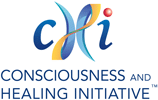Rigor, respect, and reproducibility can be considered the 3R’s for clinical trials of Integrative Health (IH) practices. Trial designs should be rigorous enough to meet clinical research standards, respectful of the traditional practice of the therapy, and yield clinical results that can be tested for reproducibility in independent trials. This is especially true for IH therapies that seek increasing inclusion as treatment options in hospitals and referral options from the biomedical community.
While these three characteristics may seem obvious, systematic reviews of clinical trials of IH interventions, including Biofield Therapies (External Qigong, Healing Touch, Reiki and Therapeutic Touch, to name a few), most often conclude that details of how the trials were performed are insufficiently and inconsistently reported. Without adequate descriptions of trial design and clear details of how the therapy was performed, attempts at replication are likely to be compromised and healthcare decision-making may be stalled.
How to begin to remedy this situation? First, we should remember that the problem of inconsistent reporting of clinical trials was formally recognized by clinical trialists and editors of leading biomedical journals over 25 years ago. After considerable discussion and deliberation, a guidance document called CONSORT (Consolidated Standards of Reporting Trials) was published in 19961 and has been twice revised.2,3 The more recent revision (CONSORT 2010) contains 25 items deemed essential for assessing the reliability and relevance of clinical findings. Medical journals have been encouraged to promote adherence to CONSORT through their instructions to authors.
While an enduring value of CONSORT has been its applicability to a wide range of treatment options, it is only valid to ask how successfully it can be applied to Integrative Healthcare practices. Quite well it turns out, with one major exception: the broadly worded CONSORT Item 5 asks for reporting on “The interventions for each group [experimental and control or comparison] with sufficient details to allow replication, including how and when they were actually administered.”3
Clearly, “sufficient details” of the intervention performed in a clinical trial of Reiki are quite distinct from the details required to describe the needling procedure in an acupuncture trial, just as both greatly differ from relevant details of drug administration in a pharmaceutical trial. This limitation has led to the creation of several CONSORT extensions that itemize a range of intervention-specific details for integrative healthcare practices, including herbal therapy4, Homeopathy5, Acupuncture6 and Yoga.7
We are now pleased to announce that the Consciousness and Healing Initiative (CHI) has added to the above list of CONSORT-based extensions by spearheading development of a guidance document for reporting clinical research on biofield therapies.
Following established procedures for creating reporting guidelines, we have created BiFi REGs (Biofield Therapies: Reporting Evidence Guidelines), which supplements CONSORT 2010 with numerous items that reflect the intervention protocols directly relevant to biofield therapy trials. Items ask, for example, whether the biofield therapy was hands-on (physical contact), hands-off (no physical contact) or both, and whether the treatment was structured (predetermined) or individualized (customized). BiFi REGs evolved through a draft document created by a core group, two rounds of a Delphi process with an international group of subject matter experts (who rated and commented on each item) and two panels, meeting via Zoom, which included editors of complementary and integrative medicine journals. BiFi REGs comprises an intervention checklist of 15 items, each of which is clarified by an explanation and several exemplars of good reporting from peer-reviewed published reports of biofield therapy trials. When used in conjunction with all other items from CONSORT 2010, we anticipate that BiFi REGs will expedite the peer review process for reports of biofield therapy trials, facilitate attempts at trial replication and help to inform decision-making in the clinical practice of these Integrative Healthcare therapies.
Further, as a glimpse of the future, the paper’s Discussion section encourages readers and researchers to begin to consider additional variables, not yet accepted or fully understood, which may affect outcomes of biofield therapy trials. These variables, such as the often proposed ‘energy in the room’, can be submitted to a designated website linked to the CHI homepage, along with other comments and suggestions that will be considered at a time when BiFi REGs is revised.
The full paper, “Biofield Therapies: Guidelines for Reporting Clinical Trials,” by Richard Hammerschlag, Meredith Sprengel and Ann Linda Baldwin, is currently in press. The paper is scheduled for multi-journal publication (following the precedent set for similar guidance documents) in January 2024, in four integrative health journals: Complementary Therapies in Medicine, EXPLORE – The Journal of Science and Healing, Global Advances in Integrative Health and Medicine, and Journal of Integrative and Complementary Medicine. It will also be available, after publication, via the CHI website.
About the Author

Richard Hammerschlag, PhD
Richard’s initial research career in neurobiology was based at the Beckman Research Institute of the City of Hope, Duarte CA, where he served as Associate Chair, Division of Neurosciences. His second research career, in acupuncture and CAM, led him to Portland OR, where he was Dean of Research at the Oregon College of Oriental Medicine. He served as co-president of the Society for Acupuncture Research and is an Executive Editor of the Journal of Alternative and Complementary Medicine. Since his ‘retirement’, he has pursued an interest in Biofield Physiology, as an Institute Scholar of The Institute for Integrative Health (Baltimore, MD) and as Director of Research for the Consciousness and Healing Initiative (San Diego, CA).
References
1 Begg C, Cho M, Eastwood S, et al. Improving the quality of reporting of randomized controlled trials. The CONSORT statement. JAMA. 1996;276(8):637–639
2 Moher D, Schulz KF, Altman DG et al. The CONSORT statement: revised recommendations for improving the quality of reports of parallel-group randomized trials. Ann Intern Med. 2001;134(8):657-62.
3 Schulz KF, Altman DG, Moher D, CONSORT Group. CONSORT 2010 statement: updated guidelines for reporting parallel group randomized trials. Ann Intern Med. 2010;152(11):726-732.
4 Gagnier JJ, Boon H, Rochon P, et al. Reporting randomized, controlled trials of herbal interventions: an elaborated CONSORT statement. Ann Intern Med. 2006;144(5):364-7.
5 Dean ME, Coulter MK, Fisher P, et al. Reporting data on homeopathic treatments (RedHot): a Supplement to CONSORT. Forsch Komplementarmedizin 2006. 2006;13(6):368-371.
6 MacPherson H, Altman DG, Hammerschlag R, et al. Revised STandards for Reporting Interventions in Clinical Trials of Acupuncture (STRICTA): extending the CONSORT statement. PLoS Med. 2010;7(6):e1000261.
7 Moonaz S, Nault D, Cramer H, Ward L. CLARIFY 2021: explanation and elaboration of the Delphi-based guidelines for the reporting of yoga research. BMJ Open. 2021;11(8):e045812.

